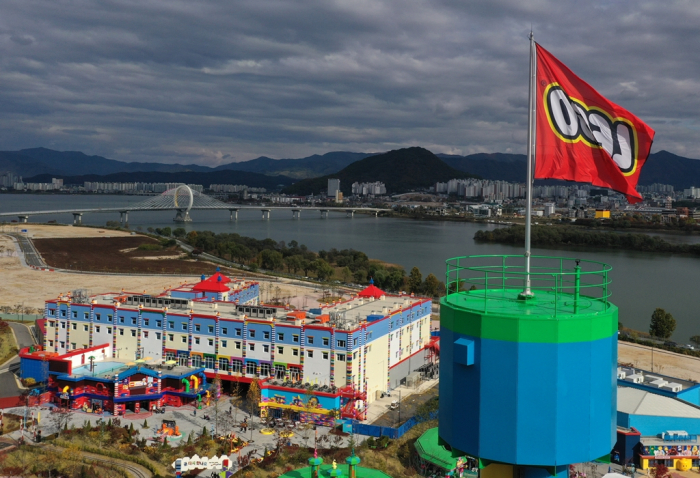Corporate bonds
BOK to ease Legoland developer default-led credit crunch
Korea’s central bank to loosen collateral policies, open temporary repurchase agreement facility; NPS may buy P-CBOs
By Oct 28, 2022 (Gmt+09:00)
2
Min read
Most Read
LG Chem to sell water filter business to Glenwood PE for $692 million


KT&G eyes overseas M&A after rejecting activist fund's offer


Kyobo Life poised to buy Japan’s SBI Group-owned savings bank


StockX in merger talks with Naver’s online reseller Kream


Meritz backs half of ex-manager’s $210 mn hedge fund



South Korea’s central bank joined rescue moves to improve liquidity in the local bond market and alleviate the fallout from a debt default by the local developer of a Legoland theme park in the country.
The Bank of Korea said on Thursday it will loosen collateral policies for domestic financial institutions applying for loans from the central bank.
The BOK decided to include bank debentures and debt issued by nine state-run companies on a list of collateral it accepts for issuing loans, a measure to be effective for three months from Nov. 1. It has been accepting government bonds, monetary stabilization bonds and government-guaranteed debt as collateral for loans to commercial banks.
The move is expected to help local banks secure up to an additional 29 trillion won, according to the BOK.
The central bank plans to open a temporary repurchase agreement facility worth about 6 trillion won ($4.2 billion) for domestic financial institutions through Jan. 31, 2023, to provide liquidity for the smooth functioning of financial markets.
The BOK will also postpone the increase in the required ratio of collateral securities for net settlements to guarantee payments up to 80% from the existing 70% for three months from February of next year. The step is likely to reduce the collateral burden of local financial institutions by 7.5 trillion won.
It decided not to use measures that need the BOK's note-issuing authority such as special loans for financial stabilization, however.
NPS TO JOIN RESCUE TEAM
Separately, financial authorities asked major local pension funds such as the state-run National Pension Service, as well as private financial institutions to buy primary collateralized bond obligations (P-CBOs), to be part of the government’s rescue plans announced earlier this month. P-CBOs are asset-backed securities guaranteed by the Korea Credit Guarantee Fund.
The NPS, the world’s third-largest pension fund, and others were known to have said they will independently consider the purchase of P-CBOs regardless of the country’s policy since they have already been investing in government-guaranteed securities.
The country on Oct. 23 vowed to inject at least 50 trillion won to stabilize short-term money and corporate bond markets hammered by the default on municipal government-guaranteed debt worth 205 billion won for Legoland Korea in Gangwon Province.
Late last month, a special purpose company established by the Gangwon Jungdo Development Corp. (GJDC) to fund the construction of the resort missed the debt payment. It was then finally listed as bankrupt earlier this month.
That caused investors to shun bonds, including those issued by companies with healthy credit ratings.
Gangwon Province, which is obligated to repay the loan as state guarantor of GJDC’s debt, said on Thursday it will fully pay the entire 205 billion won by Dec. 15 to ease market jitters.
“We have been considering effective steps to reduce the financial market burden,” said Jeong Kwang-yeol, deputy governor of economic affairs for Gangwon Province.
Write to Mi-Hyun Jo and Jun-Ho Cha at mwise@hankyung.com
Jongwoo Cheon edited this article.
More to Read
-
 Corporate bondsKorea's $35 bn plan yet to ease Legoland default woes
Corporate bondsKorea's $35 bn plan yet to ease Legoland default woesOct 25, 2022 (Gmt+09:00)
4 Min read
Comment 0
LOG IN


